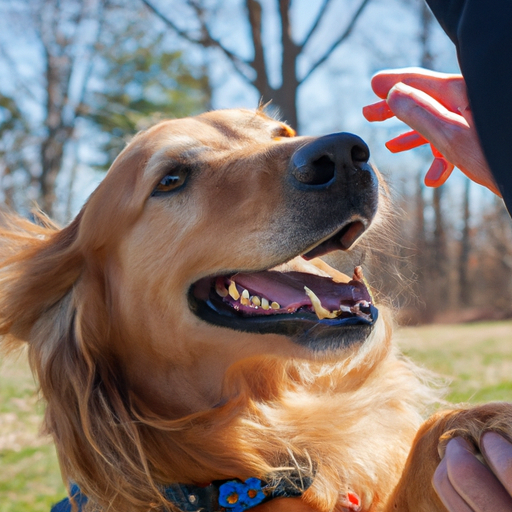As a caregiver, you have probably found yourself asking, “What is the best way to discipline a dog?” This guide is designed to provide you with the answers you need. We’ll cover eight key elements in training and disciplining your dog.
Understanding Dog Behavior
Before you can discipline your dog successfully, you need to understand dog behavior. Dogs don’t act out of spite or revenge. If your dog is misbehaving, it’s most likely because they’re bored, anxious, or don’t understand what you want.
- Boredom: Dogs are energetic creatures. They need physical and mental stimulation. If they don’t get this, they might start misbehaving to entertain themselves.
- Anxiety: Dogs can suffer from anxiety, just like humans. Separation anxiety is one common problem.
- Lack of understanding: Dogs don’t understand human language by default. They need to be trained to understand what you want from them.
Positive Reinforcement
Positive reinforcement is considered the best method to discipline your dog. Instead of punishing your dog for bad behavior, reward them for good behavior. This could be a treat, a favorite toy, or praise. You can use a clicker to mark the exact moment your dog does what you want.
Timing is Crucial
The timing of your discipline is crucial. If you don’t catch your dog in the act, they won’t understand why they’re being punished.
For example, if you come home to find your dog has chewed your shoes, it’s too late to punish them. They won’t connect the punishment with the act of chewing your shoes. Instead, catch them in the act and redirect their attention to something appropriate.
Consistency is Key
Consistency is key in dog discipline. Everyone in the household needs to understand and follow the same rules. If one person allows your dog on the couch and another doesn’t, your dog will be confused.
Here’s a table summarizing who should be involved in your dog’s discipline:
| Who | Role in Discipline |
|---|---|
| You | Primary caregiver and discipliner |
| Family Members | Reinforce rules and expectations |
| Dog Sitter | Reinforce rules and expectations |
| Dog Walker | Reinforce rules and expectations |
Ignoring Bad Behavior
Sometimes, the best way to discipline your dog is to simply ignore them. If your dog is barking for attention, for example, giving them attention (even negative attention) reinforces the behavior. Instead, ignore them until they’re quiet, then reward them.
Training Classes
If you’re struggling with disciplining your dog, consider a training class. These classes can be a great way to learn the basics of dog discipline and training. Plus, they provide a great opportunity for your dog to socialize.
Professional Help
If your dog’s behavior is dangerous or disruptive, it may be time to seek professional help. A dog behaviorist can provide personalized advice and training methods.
Patience and Love
Above all, remember that disciplining your dog requires patience and love. Your dog wants to please you. They’re just trying to understand what you want.
Frequently Asked Questions
1. Can I use physical punishment to discipline my dog?
Physical punishment is not recommended. It can lead to aggressive behavior. Instead, use positive reinforcement and redirection.
2. My dog keeps repeating the same bad behavior. What should I do?
Consistency is key. Keep redirecting their behavior and rewarding them for good behavior. If the behavior continues, consider seeking professional help.
3. How long will it take to train my dog?
Training takes time and patience. The exact amount of time will depend on your dog’s breed, age, and individual personality.
4. What if my dog doesn’t like treats?
Find another form of reward. This could be a favorite toy or praise.
5. What do I do if my dog starts behaving aggressively?
If your dog shows signs of aggression, seek professional help immediately. Aggression can be a sign of fear or anxiety and should be handled by a professional.



